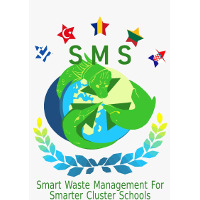The indirect intentions of the projects are to treat the school as a home where are constructed with care, love and respect subtle lines of students personality and a responsible behavior which can be multiplied&activate in the family&community day be day, as a habit.By perspective of live long learning, we are proposing a plan for grow, a learning construction for reducing the negative effects on human health, environment balance, but also aesthetic of environment, a working style in clusters with 5 main nodes (the cluster school leaders) which can activate the other schools, as part of a nodes in a network. Here it is not just a simple construction of a network, but activating it, the project partners as cluster leaders involving other schools near&enforcing the project impact as a wave, from the closest to the farthest by central nodes (individually, but institutionally, too). Human health, durable development, circular economy&conserving a clean&safe environment are common imperatives of any educational system which is respecting the values of Alive; in this way, the schools should be a strong active partner for authorities &private business, designing& implementing a Smart Waste Management Strategy for All (including disable persons) in schools on 5 R: Reducing, Reusing, Recycling, Recreating, Revaluing, constructing trust relationships, allowing curiosity, engagement&more control to the team work.
The project objectives
- O1 Activating a cluster scholar community with 6 leader schools (6 direct project partners)&12 indirect schools (2 schools each partners)for school growing&community health;
- O2 Development of cluster leadership competences for 36 teachers of project partners & min.6 teachers by cluster schools;
- O3 Development of key competences&independent life skills for min. 36 teachers & min.120 students of project partners&min.6 teachers of cluster schools.
- O4 Increase responsible&active citizenship, including digital one, for min.36 teachers &min.120 students of project partners&min.6 teachers of cluster schools.
- O5 - Development of a smart waste management strategy/plan for schools (collection, reducing, reusing, recycling,recreating&revalue) by separate waste collection service, the health& sanitary of existence practice, clean water, space&air, aesthetic of environment.
Results
- 1 scholar cluster by 4 national clusters with 2 schools &1 cluster with 4 schools (RO: 2 by urban & 2 by rural areas)
- 5 Plans/Strategies for Smart Waste Management&Heath prevention in school
- 5 Digital tools for monitoring waste selective collection &safety practice in schools
- 1 interactive webspace
- 1 FB page
- 6 mindmaps for waste collection service
- 6 smart-waste bins for visual impairment
- min. 6 Special Keys for broke the bag plastic habits in daily life
- min.12 creative objects (by recyclable or non recyclables waste) with aesthetic value
- 6 Alive corners& 6 ecological areas in schools
- 6 events as Months of Waste
- 1 study/article with ISBN
- 30 original badges
- 6 follow-up events after mobility (1 by each): 2 workshops for teachers as eTwinning events, 2 workshops for students, 1 brainstorming with an entrepreneur, 1 national competition for the best recycling idea, 2 public events in a public place for dissemination
- ”To Care as a Duty!”-an ISBN Guidance book for students, teachers, parents, youth leaders, increasing the key competences for an independent&safe life in a community for min.42 teachers & min.120 students, increasing the cluster leadership skills for min.42 teachers, reinforcing the active&participative dimensions of citizenship for direct&indirect participants.
The direct participant groups are: teachers who are working in the partner schools (min.60 teachers) and students of them by age interval 10 -18 years old (min.240 students); in these categories there are also min. 36 teachers and min.120 students by 12 cluster schools who will be involved directly in mobility in the moment of hosting, but also in other common project activities in the project partners schools (national nodes of the cluster). By total of min. 240 students in partner schools are included min.60 students with fewer opportunities (disable, with economic/social obstacles, cultural disadvantages, min.10 students by each project partner).
The project proposes 6 mobility in school partners as: 2 Short-term joint training mobility for teachers (in Romania 1& Greece), 4 short-term exchanges of groups of pupils (in Romania 1, Croatia, Lithuania&Turkey), but also complementary common learning activities monthly, including follow-up events, dissemination actions, monitoring& evaluation of the project stage, organisational activities reported to management &implementation of the project.

